In today’s digital landscape, the importance of data security cannot be overstated. As businesses increasingly rely on digital platforms to store and manage their critical information, the need to protect this data from unauthorized access, breaches, and theft has become paramount. This is where Cyberus Systems steps in, offering comprehensive security solutions tailored to the unique needs of each organization.
Data security encompasses the practices and technologies used to ensure the confidentiality, integrity, and availability of information. It’s about safeguarding your digital assets against the myriad of cyber threats that loom in the online world. From sensitive customer information to proprietary business data, ensuring the security of these assets is not just about protecting an organization’s operational integrity; it’s about maintaining trust and compliance in an increasingly regulated global market.
At Cyberus Systems, based in Maryland, we understand the evolving nature of these threats. Our approach to cybersecurity is rooted in proactivity; we don’t just respond to incidents but work tirelessly to prevent them. Our services are designed to provide businesses with the peace of mind that comes from knowing their data is protected around the clock. By combining the latest technology with the expertise of our seasoned security professionals, we offer customized solutions that not only address the current security needs of our clients but also anticipate future challenges.
The digital age has brought about unparalleled opportunities for businesses, but it has also introduced complex security challenges. In navigating this landscape, companies must prioritize data security not just as a compliance requirement but as a fundamental component of their business strategy. Cyberus Systems is dedicated to ensuring that our clients can meet these challenges head-on, transforming potential vulnerabilities into strengths.
What is data Security? The Pillars of Data Security
In today’s digital age, where information flows freely and business operations rely heavily on electronic data, the significance of data security cannot be overstated. For companies like Cyberus Systems, headquartered in Maryland, safeguarding this data against unauthorized access, breaches, and theft is not just a service; it’s a mission to protect the critical assets of businesses across various industries.
Data security embodies the practices and processes that ensure the confidentiality, integrity, and availability of information, which are the three fundamental pillars essential for building a robust cybersecurity framework.
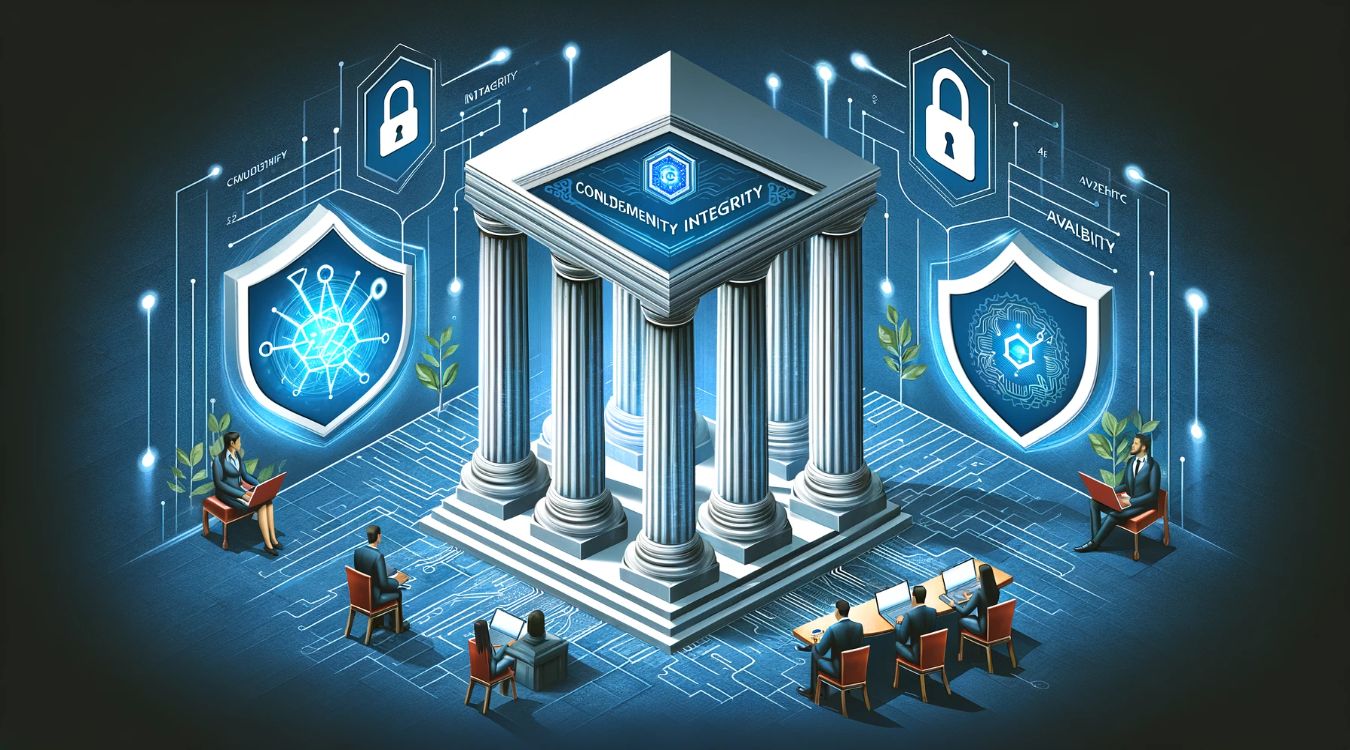
Data Integrity
Data Integrity involves maintaining the accuracy and consistency of data over its entire lifecycle. This means ensuring that the information remains unaltered from its original state unless a legitimate modification is required. For businesses, data integrity is crucial because it ensures that decisions are made based on reliable and accurate information. Cyberus Systems emphasizes the importance of this pillar by employing advanced technologies and methodologies to prevent data tampering and corruption, thereby supporting the operational excellence and decision-making processes of its clients.
Data Availability
Data Availability is about ensuring that information is readily accessible to authorized users when it is needed. This aspect of data security is vital for operational continuity and efficiency. Downtimes or delays in data access can lead to significant financial losses and damage to an organization’s reputation. Through its proactive approach, Cyberus Systems implements resilient data backup and recovery solutions, ensuring that its clients’ data is always available, even in the face of cyber threats or technical failures.
Data Confidentiality
Data Confidentiality focuses on keeping sensitive information secret and ensuring that it is accessible only to those who are authorized to view or use it. This involves protecting personal data, trade secrets, and other types of confidential information from unauthorized access and disclosures. Techniques such as encryption, secure password protocols, and access controls are part of the toolkit that Cyberus Systems uses to safeguard the confidentiality of data. By doing so, the company not only helps its clients comply with privacy laws and regulations but also maintains the trust of customers and stakeholders.
In providing comprehensive security solutions, Cyberus Systems stands out by offering customized solutions tailored to the unique needs of each client. With predictable costs, 24/7 availability, and a commitment to enhancing productivity, the company ensures that its clients can focus on their core business operations with the confidence that their data is secure. As businesses continue to navigate the complexities of the digital landscape, partnerships with dedicated cybersecurity providers like Cyberus Systems are invaluable in maintaining the integrity, availability, and confidentiality of critical data.
Key Data Security Threats
In the complex and ever-evolving landscape of cybersecurity, understanding the nature and impact of various threats is crucial for effective defense. Companies like Cyberus Systems play a pivotal role in identifying and mitigating these threats, safeguarding the data integrity, availability, and confidentiality for businesses in Maryland and beyond. The most common cybersecurity threats include malware, phishing, and ransomware, each carrying its own set of challenges and implications for data security.

Malware:
Short for malicious software, malware is an umbrella term for any software intentionally designed to cause damage to a computer, server, client, or network. Malware can delete, encrypt, or steal data; monitor and control user activity; and disrupt hardware operations. Cyberus Systems leverages cutting-edge tools and expert knowledge to protect organizations from malware, using proactive measures to prevent infections before they occur.
Phishing:
This form of cyberattack involves deceiving individuals into disclosing sensitive information, such as login credentials and financial information, or convincing them to perform actions that compromise their computer’s security. Phishing attacks often take the form of legitimate-looking emails or messages, making it a particularly insidious threat to data confidentiality. Through comprehensive training and awareness programs, Cyberus Systems educates its clients’ employees on identifying and avoiding phishing attempts, thereby reducing the risk of data breaches.
Ransomware:
A type of malware that encrypts the victim’s files, with the attacker demanding a ransom from the victim to restore access to the data upon payment. Ransomware attacks can cripple organizations, making data unavailable and potentially causing significant financial and reputational damage. Cyberus Systems’ proactive and reactive security measures are designed to prevent ransomware attacks and ensure swift recovery, minimizing downtime and data loss.
The impact of these threats on data security can be profound. Malware can corrupt or destroy data, undermining data integrity. Phishing attacks can lead to unauthorized access to sensitive data, breaching confidentiality. Ransomware can make critical data inaccessible, disrupting operations and compromising data availability.
To counter these threats, Cyberus Systems provides customized security solutions that include state-of-the-art encryption, robust authentication and authorization mechanisms, and comprehensive monitoring and incident response plans. These measures are tailored to meet the specific needs of each client, ensuring the highest level of protection against the dynamic spectrum of cybersecurity threats.
Data Security Best Practices
Implementing a robust data security strategy involves a multi-faceted approach. Cyberus Systems advocates for several best practices that form the cornerstone of effective data protection.
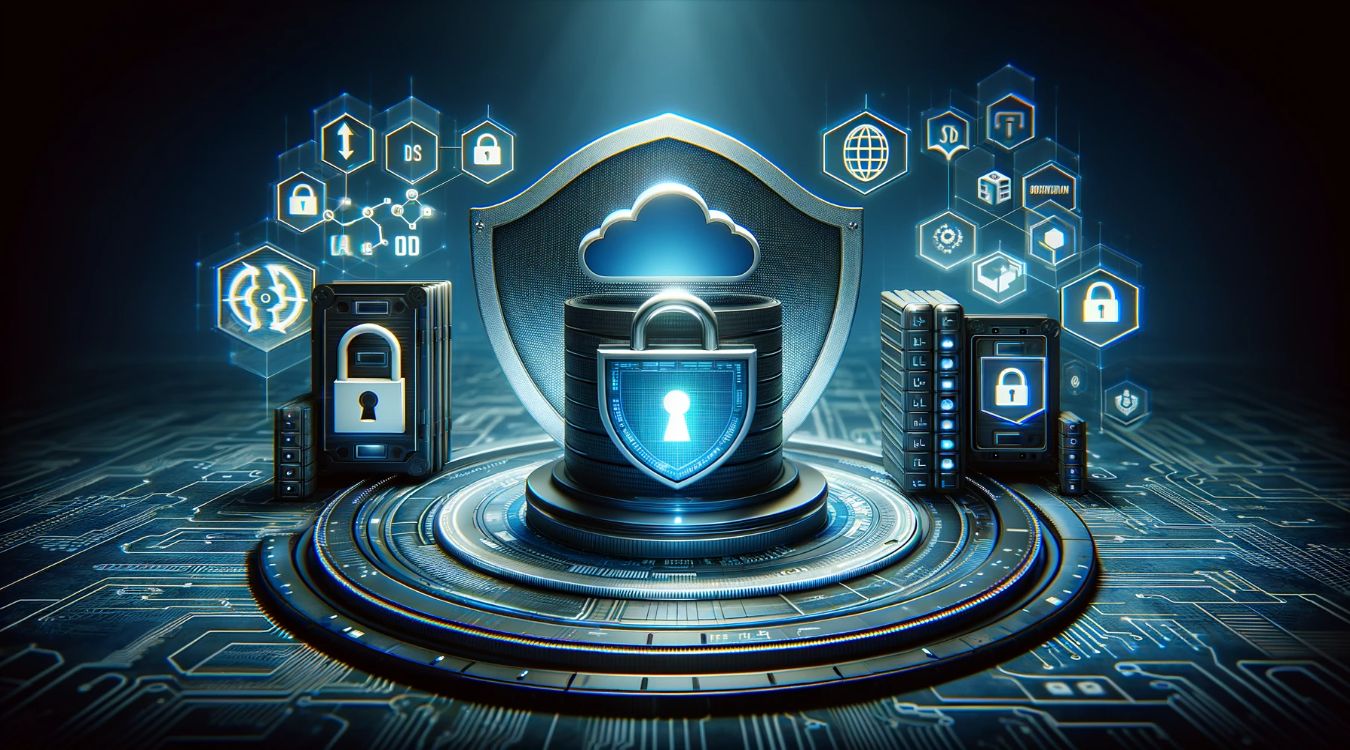
Implementing Strong Access Controls
Access controls are critical in ensuring that only authorized individuals can access sensitive information. Effective access control mechanisms include multi-factor authentication (MFA), which adds an extra layer of security beyond just passwords, and role-based access control (RBAC), which grants permissions to users based on their role within the organization. By employing these and other access control measures, Cyberus Systems helps clients minimize the risk of unauthorized access to their data.
Regular Data Backups
The importance of regularly backing up data cannot be overstated. In the event of data loss due to cyberattacks, natural disasters, or human error, having up-to-date backups enables organizations to restore their information quickly and continue operations with minimal downtime.
Cyberus Systems recommends implementing automated backup solutions that regularly save critical data to secure, off-site locations or cloud storage services. This practice, coupled with regular testing of backup systems, ensures data recovery processes are effective and reliable.
Encryption Techniques
Encryption is a fundamental data security technique that converts sensitive information into a coded format, making it unreadable to unauthorized users. Whether data is at rest or in transit, encryption plays a crucial role in protecting it from interception or theft. Cyberus Systems leverages advanced encryption protocols to secure clients’ data, providing an essential layer of protection against cyber threats. By incorporating strong encryption standards into their security architecture, organizations can significantly enhance the confidentiality and integrity of their data.
By adhering to these best practices, Cyberus Systems not only secures its clients’ data but also empowers them to operate confidently in a digital landscape fraught with security challenges.
Advanced-Data Security Measures
To stay ahead in the ever-evolving landscape of cybersecurity threats, organizations must employ advanced data security measures. Cyberus Systems, with its mission to provide comprehensive security solutions, emphasizes the importance of sophisticated technologies like Intrusion Detection Systems (IDS) and Security Information and Event Management (SIEM) systems. These tools play a pivotal role in detecting, analyzing, and responding to cyber threats in real time, ensuring the safety of critical data assets.
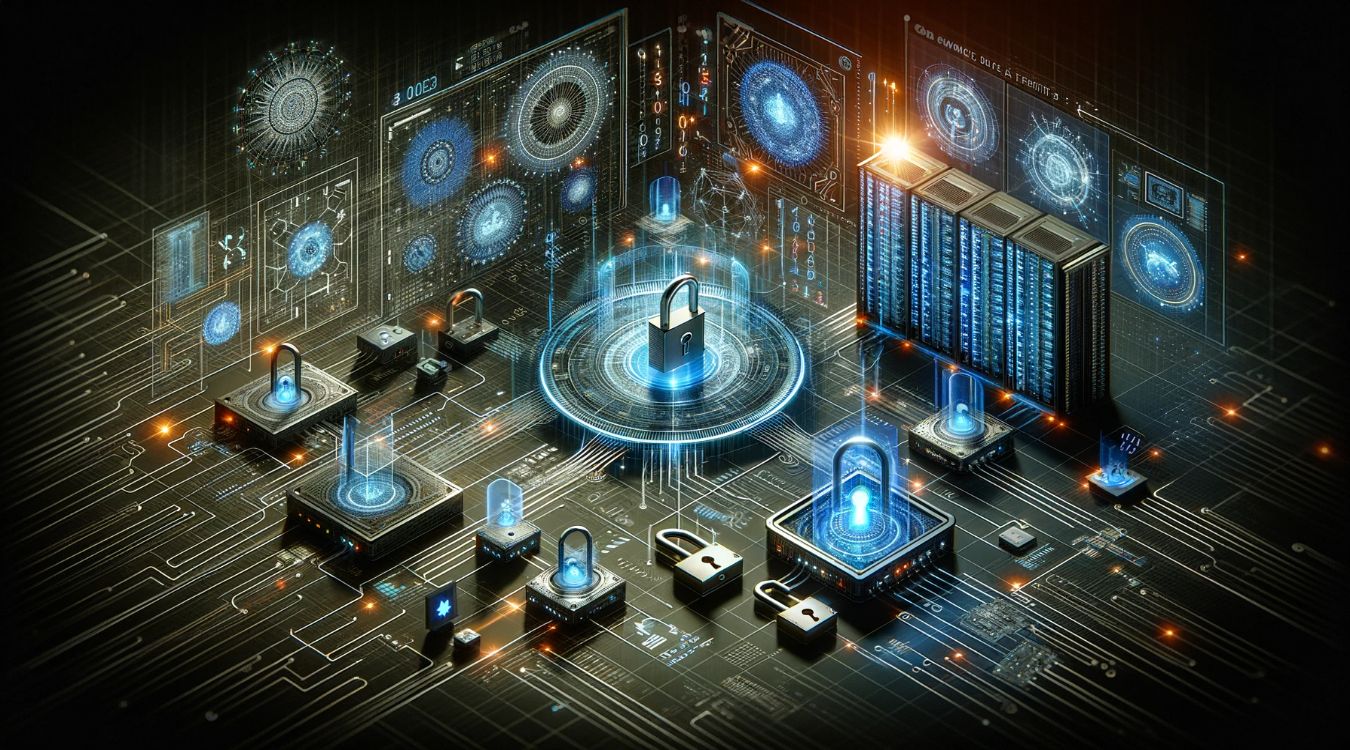
Intrusion Detection Systems (IDS)
The Role of IDS in Data Security: Intrusion Detection Systems are designed to monitor network and system traffic for suspicious activities and potential threats. IDS plays a crucial role in data security by providing real-time analysis of traffic patterns and identifying anomalies that could indicate a cyberattack. By alerting administrators to potential threats as they occur, IDS enables rapid response to mitigate damage.
Examples of IDS Technologies: IDS technologies can be classified into two main types: Network-based Intrusion Detection Systems (NIDS) and Host-based Intrusion Detection Systems (HIDS). NIDS monitors the traffic on a network for suspicious activity, while HIDS operates on individual devices, checking for malicious patterns in system behavior and file integrity. Cyberus Systems leverages both types of IDS, utilizing state-of-the-art technologies to provide comprehensive monitoring and protection for its clients’ networks and devices.
Security Information and Event Management (SIEM)
Understanding SIEM: Security Information and Event Management (SIEM) systems provide a more holistic approach to security monitoring and management. SIEM technology combines data from multiple sources to provide a comprehensive view of an organization’s security posture. It collects, normalizes, and analyzes log data to identify patterns of behavior that may indicate a security incident or breach.
Benefits of Integrating SIEM into Data Security Strategies: The integration of SIEM systems into data security strategies offers numerous benefits. Firstly, it enhances the ability to detect complex cyber threats through advanced analytics and correlation techniques. Secondly, SIEM provides centralized visibility into an organization’s security environment, making it easier to manage and respond to incidents. Finally, compliance reporting is streamlined, as SIEM can generate detailed reports on security events and incidents, aiding in adherence to regulatory requirements.
By adopting advanced data security measures like IDS and SIEM, Cyberus Systems not only strengthens the security defenses of its clients but also ensures that they are well-equipped to identify, respond to, and recover from cyber threats efficiently. This proactive approach to cybersecurity underscores the company’s commitment to protecting its clients’ data and maintaining their trust in an increasingly digital world.
Data Security Compliance and Legal Requirements
In the intricate web of today’s global digital economy, understanding and adhering to data security compliance and legal requirements is crucial for businesses to navigate successfully. Cyberus Systems, a leader in providing cybersecurity solutions, underscores the importance of compliance as a cornerstone of its service offerings. Compliance is not just about adhering to laws; it’s about building trust with customers and stakeholders by ensuring that data is handled securely and responsibly.
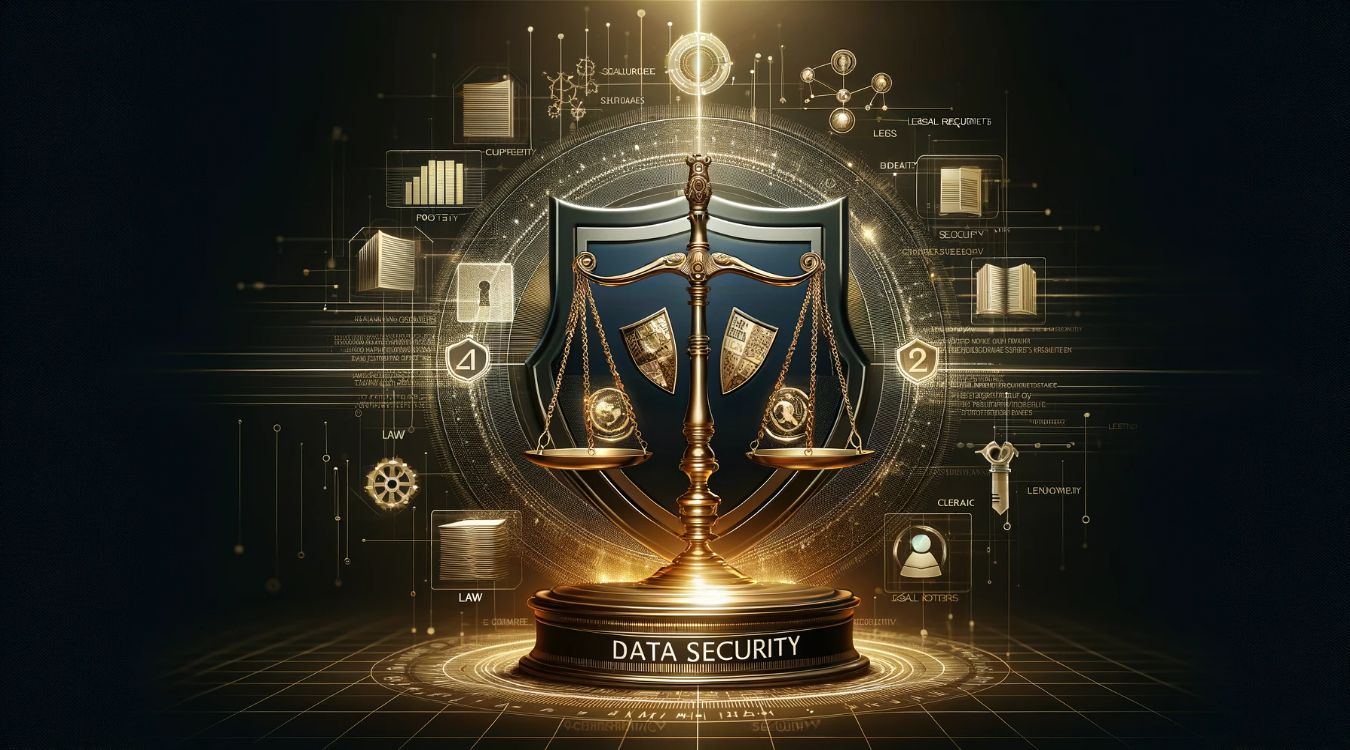
Overview of Key Data Protection Laws and Regulations
The landscape of data protection laws and regulations is vast and varies by geography and industry, but there are a few key legislations that have set the benchmark for data security standards worldwide:
- General Data Protection Regulation (GDPR): Enacted by the European Union, GDPR is one of the most stringent privacy and security laws in the world. It imposes obligations onto organizations anywhere, so long as they target or collect data related to people in the EU. GDPR has set a high standard for consent, data rights, and processing transparency, influencing many other regulations globally.
- Health Insurance Portability and Accountability Act (HIPAA): This U.S. law protects sensitive patient health information from being disclosed without the patient’s consent or knowledge. HIPAA compliance is mandatory for healthcare providers, insurers, and their business associates, setting the standard for patient data protection across the healthcare industry.
Compliance with these and other data protection laws (such as CCPA in California, PIPEDA in Canada, and others) is critical for businesses operating across borders. Cyberus Systems integrates knowledge of these regulations into its cybersecurity solutions, ensuring that its clients not only meet but exceed the requirements set forth by these laws, safeguarding their data and that of their customers.
Importance of Compliance for Businesses
Compliance with data protection laws is not just a legal obligation; it’s a competitive advantage. Here’s why:
- Trust and Reputation: Businesses that adhere to high standards of data protection are more likely to be trusted by customers, partners, and stakeholders. This trust is invaluable and can differentiate a business in a crowded market.
- Avoidance of Fines and Sanctions: Non-compliance can lead to hefty fines, legal fees, and sanctions. For example, GDPR violations can result in fines of up to 4% of annual global turnover or €20 million (whichever is greater).
- Operational Resilience: Compliance requires businesses to implement robust data security measures, which in turn enhances their resilience against cyber threats. This proactive approach to security can prevent data breaches and minimize the impact of any security incidents that do occur.
Cyberus Systems helps businesses navigate the complex requirements of data protection laws by providing tailored cybersecurity solutions. By focusing on compliance, Cyberus Systems not only ensures that its clients meet legal requirements but also strengthens their overall security posture, protecting their critical assets from cyber threats in an ever-evolving digital landscape.
The Future of Data Security
As we venture deeper into the digital age, the future of data security is poised to be shaped by emerging trends and technologies that promise to redefine how we protect and manage sensitive information. Cyberus Systems, with its commitment to providing cutting-edge cybersecurity solutions, is at the forefront of adopting and integrating these advancements to safeguard businesses against future threats.
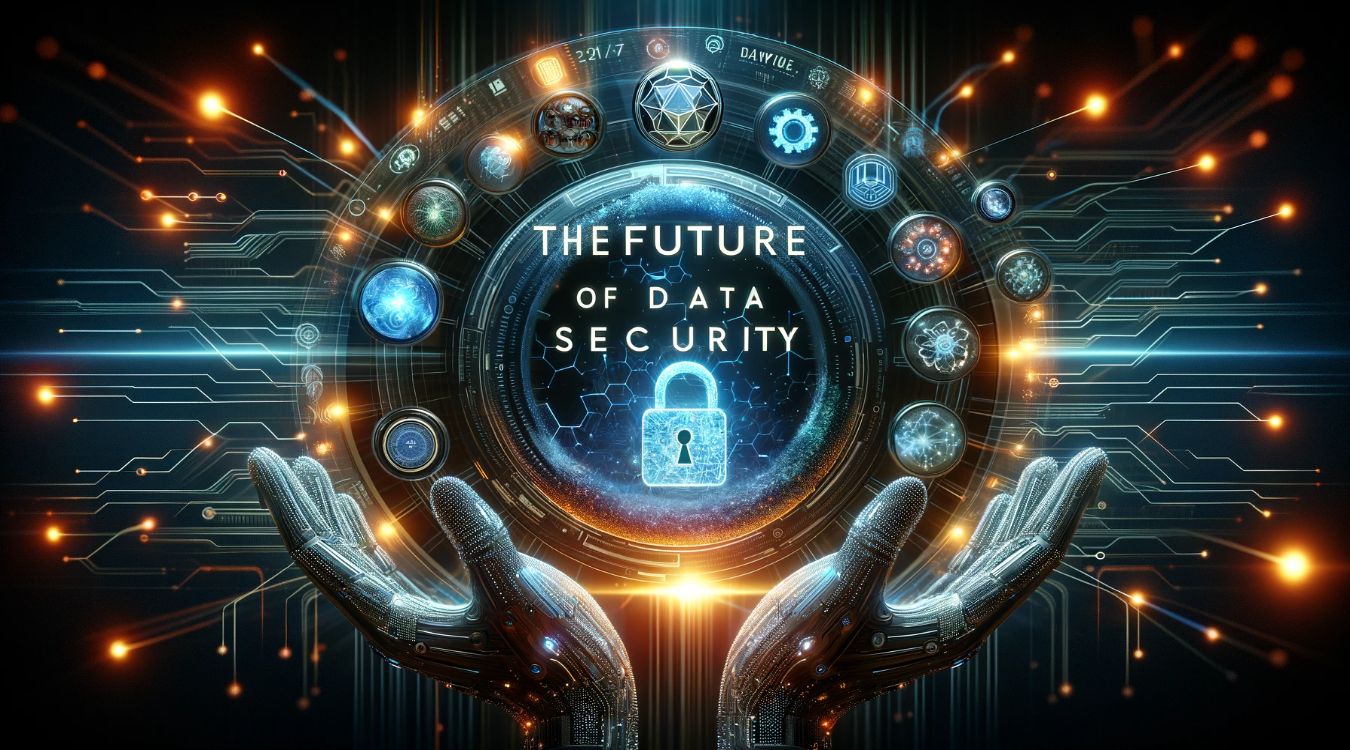
Emerging Trends and Technologies in Data Security
Artificial Intelligence and Machine Learning: AI and ML are revolutionizing data security by enabling more sophisticated threat detection and response mechanisms. These technologies can analyze vast amounts of data to identify patterns and predict potential security breaches before they occur. Cyberus Systems leverages AI and ML to enhance its security offerings, providing proactive protection against ever-evolving cyber threats.
Blockchain Technology: Known for its robustness in securing cryptocurrency transactions, blockchain technology offers significant potential for enhancing data security across various sectors. Its decentralized nature makes it ideal for securing transactions, ensuring data integrity, and preventing fraud. By exploring the applications of blockchain, Cyberus Systems aims to offer innovative solutions that ensure the integrity and confidentiality of data.
Zero Trust Security Models: The principle of “never trust, always verify” is becoming increasingly relevant in today’s security landscape. Zero Trust models assume that threats can originate from anywhere, inside or outside the network, and enforce strict identity verification for every person and device attempting to access resources. Cyberus Systems incorporates Zero Trust principles into its security frameworks, minimizing the risk of unauthorized access and data breaches.
Quantum Computing and Cryptography: As quantum computing continues to develop, it presents both challenges and opportunities for data security. Quantum computers have the potential to break current encryption methods, necessitating the development of quantum-resistant cryptography. Cyberus Systems stays abreast of advancements in quantum computing to ensure its encryption methods remain unbreakable, even in the face of quantum computing threats.
Preparing for Future Challenges in Data Security
The landscape of data security is constantly evolving, with new threats emerging as quickly as technologies develop. To prepare for these future challenges, businesses must adopt a forward-thinking approach to data security, one that anticipates potential threats and evolves in tandem with technological advancements.
Cyberus Systems advises organizations to invest in continuous learning and adaptation of their security practices. This includes regular updates to security protocols, ongoing employee training on the latest cyber threats and prevention strategies, and adopting an agile mindset that welcomes technological innovation.
Moreover, collaboration between cybersecurity experts, industry leaders, and regulatory bodies is essential to develop standardized security frameworks that can withstand the test of new threats. By fostering a culture of security that prioritizes resilience, adaptability, and proactive measures, Cyberus Systems and its clients can stay ahead of the curve in protecting their most valuable assets in the unpredictable landscape of the future.
The future of data security is a dynamic and challenging frontier, but with companies like Cyberus Systems leading the charge, businesses can navigate this landscape with confidence, leveraging the latest technologies and strategies to protect their data and ensure their longevity in the digital world.
What is data Security? – FAQs
What is data security?
Data security refers to the practices and processes designed to protect digital information from unauthorized access, corruption, or theft throughout its lifecycle. It involves a combination of physical, administrative, and technical measures to safeguard sensitive data.
Why is data security important?
Data security is crucial for protecting the integrity and privacy of sensitive information, which can include personal details, financial records, and intellectual property. It helps prevent data breaches, identity theft, and financial fraud, ensuring operational continuity and maintaining trust between businesses and their customers.
How can I improve my organization’s data security?
Improving your organization’s data security can be achieved through several key steps:
- Conduct regular risk assessments to identify vulnerabilities.
- Implement strong access control measures, such as multi-factor authentication.
- Ensure data is encrypted, both at rest and in transit.
- Keep software and systems up to date with the latest security patches.
- Train employees on cybersecurity best practices and awareness.
- Develop and test an incident response plan.
What are the most common data security threats?
The most common data security threats include malware (e.g., viruses, worms, trojans), phishing attacks, ransomware, insider threats, and advanced persistent threats (APTs). These threats exploit vulnerabilities to access or damage data.
What is the difference between data security and data privacy?
Data security focuses on protecting data from unauthorized access and breaches, ensuring that data remains intact and is accessible only to authorized users. Data privacy concerns the proper handling, processing, and consent around the collection and use of personal information, focusing on compliance with laws and regulations.
How does encryption protect data?
Encryption converts data into a coded format that is unreadable without the correct decryption key. This ensures that even if data is intercepted or accessed by unauthorized individuals, it cannot be understood or misused.
What role does compliance play in data security?
Compliance with data protection laws and regulations, such as GDPR or HIPAA, ensures that organizations follow best practices in securing personal and sensitive data. It helps prevent breaches and maintains customer trust, while non-compliance can result in hefty fines and reputational damage.
Can data security guarantee that my data is 100% safe?
While data security significantly reduces the risk of data breaches and unauthorized access, no system can be 100% foolproof. Continuous monitoring, regular updates, and adopting a layered security approach can provide the best possible defense against emerging threats.
What is a zero-trust security model?
A zero-trust security model operates on the principle that no entity inside or outside the network should be trusted by default. Verification is required from everyone trying to access resources in the network, significantly reducing the risk of unauthorized access and data breaches.
Conclusion
The digital era has underscored the critical importance of data security, with businesses and individuals generating and storing vast amounts of sensitive information online. As cyber threats continue to evolve in complexity and scale, the need for robust data security measures has never been more pressing. Data security is not just a technical necessity but a foundational aspect of trust and reliability in the digital age.
Cyberus Systems, through its comprehensive security solutions, exemplifies the commitment to safeguarding the digital assets of businesses across industries. By emphasizing the pillars of data security—confidentiality, integrity, and availability—and staying ahead of emerging threats with advanced technologies, Cyberus Systems plays a pivotal role in enabling a secure digital future.
The responsibility of ensuring data security extends beyond businesses to include every individual who interacts with digital technology. It is a collective effort that requires awareness, education, and the adoption of best practices in data protection.
We call on businesses and individuals alike to prioritize data security, not only as a means of protecting against cyber threats but as a commitment to fostering a safer, more trustworthy digital world. Engaging with cybersecurity experts, adopting proactive security measures, and staying informed about the latest trends and threats are essential steps in this ongoing journey. Together, we can build a digital environment where security, privacy, and innovation thrive.
